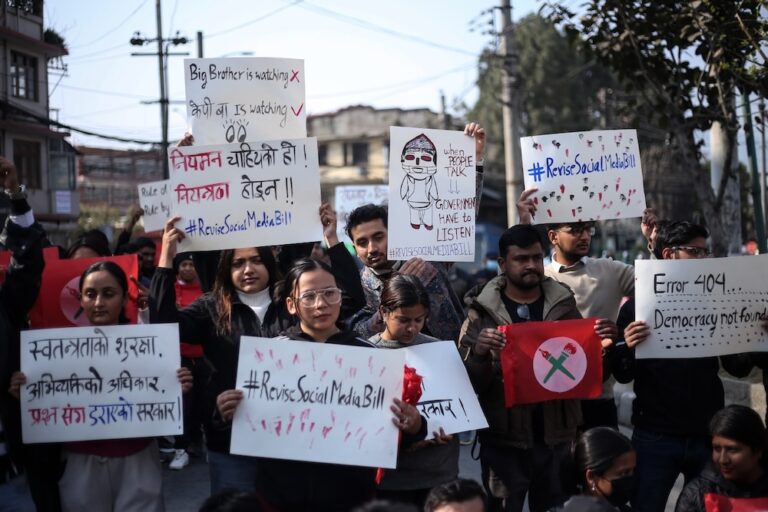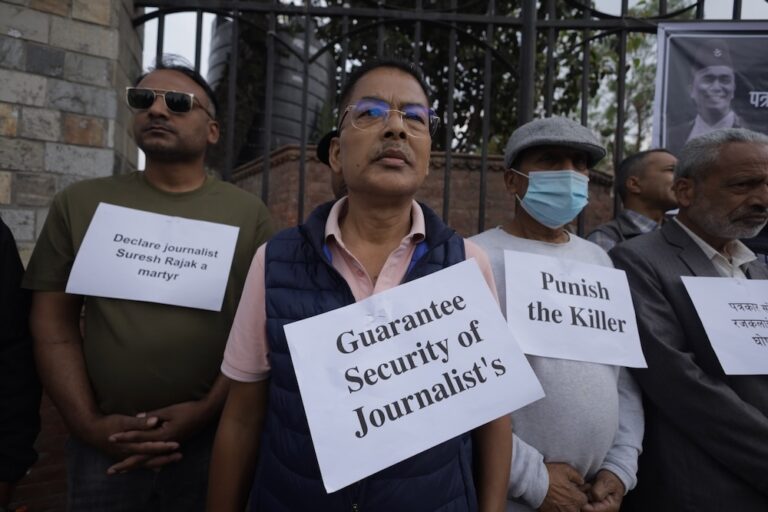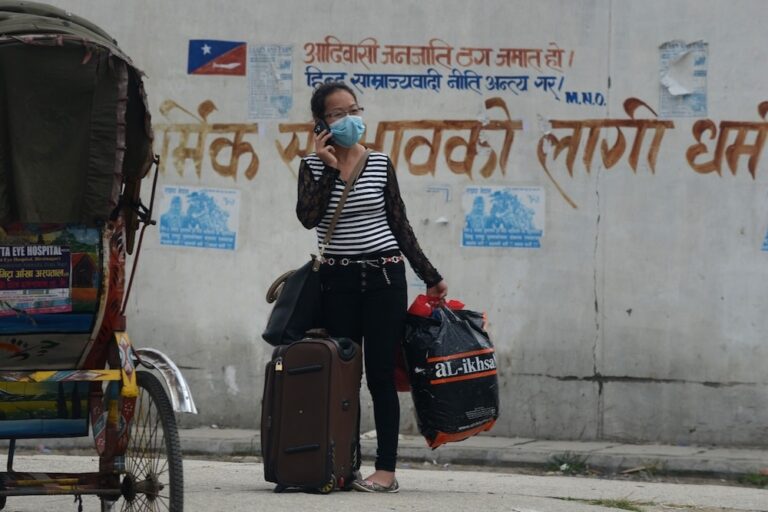(CEHURDES/IFEX) – On 7 October 2002, journalist Deepak Pandey, associated with Space Time Publications, was beaten by plainclothes police inspector Sukadev Neupane. The incident occurred while Pandey was reporting at the site of a timber fire at around 9:00 p.m. (local time), near Kamalpokhari, in Kathmandu. Space Time Publications publishes the daily newspapers “Spacetime Today” […]
(CEHURDES/IFEX) – On 7 October 2002, journalist Deepak Pandey, associated with Space Time
Publications, was beaten by plainclothes police inspector Sukadev Neupane. The incident occurred while Pandey was reporting at the site of a timber fire at around 9:00 p.m. (local time), near Kamalpokhari, in Kathmandu. Space Time Publications publishes the daily newspapers “Spacetime Today” in English and “Space Time Daily” in Nepali.
According to Pandey, “the drunk police officer came rushing to the site and ordered everyone to stay far away, using slang. He punched me in the neck twice.” According to news reports, the inspector ordered the police to push Pandey into a nearby parked van. The journalist was then badly beaten inside the van. Lila Khanal, an eyewitness, said, “the police punched Pandey in the face one more time.”
In a separate incident, the District Administration Office (DAO) recently issued a house arrest order against Chandra Prakash Baniya, advisor for “Myagdi Sandesh” newspaper, published in Mayagdi district, western Nepal. The order, which was issued under the Terrorism and Destruction Act-2001, stemmed from an article by Baniya that was published in the 17 September edition of “Myagdi Sandesh”. DAO sources said the article inspires Maoists to carry out terrorist activities. Baniya was also a former parliamentarian in the Nepalese lower house. The DAO arrested Tika Ram Sapkota, “Myagdi Sandesh” editor and publisher, on the same charge and released him on bail.
CEHURDES condemns the actions undertaken by the security forces and the administration against the journalists. CEHURDES calls on the authorities to respect media freedom, urges them to ensure that journalists and free expression activists can freely move about, and maintain an environment conducive to impartial news reporting.
Background Information
Following the imposition of a state of emergency in Nepal on 26 November 2001, more than 150 journalists have been arrested in different parts of the country. The state of emergency was lifted on 28 August, but nearly three dozen journalists remain in detention. Some journalists have reportedly been tortured, both physically and psychologically. Several detainees’ whereabouts are unknown. There have been no reports of official charges filed against any of the detained journalists.
Furthermore, on 4 October 2002, King Gyanendra assumed all executive powers until the formation of an interim government. Prime Minister Sher Bahadur Deuba was sacked and elections scheduled for 13 November were postponed for an indefinite period.


